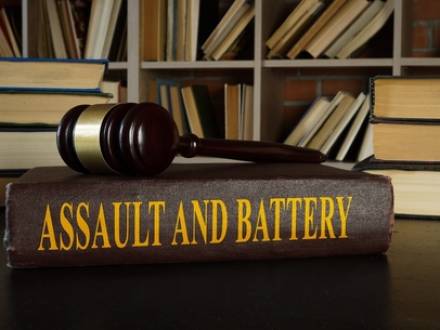
When Medical Conditions Affect Assault Charges in Maryland
 Assault charges in Maryland can arise from many different situations. Some of these situations involve intentional acts of violence, while others result from misunderstandings or circumstances that are beyond an individual’s control. In some cases, a defendant’s medical condition could explain his or her actions.
Assault charges in Maryland can arise from many different situations. Some of these situations involve intentional acts of violence, while others result from misunderstandings or circumstances that are beyond an individual’s control. In some cases, a defendant’s medical condition could explain his or her actions.
Sudden behavior changes, confusion, or involuntary movements that are mistaken for aggressive acts can be attributed to conditions like epilepsy, dementia, certain mental health disorders, and even diabetes. The law does not automatically excuse an assault because of a medical condition; however, health factors can play a crucial role in the defense strategy.
If the act was involuntary, the required intent was not present, or there is an alternative explanation for the assault that hinges on a medical condition, the individual may not be held accountable. Suppose you have been charged with assault, and you have a medical condition that can explain the assault. In that case, it is important that you consult with an experienced Annapolis, MD, criminal defense lawyer.
What is the Definition of Assault in Maryland?
Assault in Maryland is classified into two degrees: first-degree assault and second-degree assault. Second-degree assault is a misdemeanor that involves an attempt to cause offensive physical contact or actual offensive touching. Even when no actual touching occurs, when the alleged victim is placed in reasonable fear of imminent physical harm, second-degree assault can be charged. Second-degree assault has a maximum penalty of 10 years in prison.
First-degree assault is a felony that involves intentionally causing or attempting to cause serious physical injury to another person. An assault committed with a firearm, regardless of the severity, is also a first-degree assault. A conviction for first-degree assault has a maximum penalty of 25 years in prison. The prosecution must prove that the act of assault was voluntary and intentional to secure a conviction.
How Can Medical Conditions Play a Role in Assault Charges?
Some medical conditions can lead others to believe an assault occurred when it did not. Certain types of seizures can cause individuals to engage in automatic behaviors that appear aggressive or violent. The individual could hit, kick, or grab, without conscious control and no intent to harm.
In some cases, directly after experiencing a seizure, an individual can experience disorientation and even aggression, failing to understand his or her surroundings and misinterpreting situations. This can lead to acts perceived as assault. Diabetic hypoglycemia can also lead to confusion, aggression, and involuntary movements.
Neurological disorders, like Parkinson’s and Huntington’s, can lead to sudden physical contact without intent on the part of the person with the disorder. Dementia and Alzheimer’s can lead to confusion or aggression that causes sudden physical contact, and a variety of mental health crises and medication side effects can alter behavior.
Defenses to Assault Related to Medical Conditions
The primary defense to charges of assault for a person with a medical condition is a lack of intent. If the conduct was involuntary due to a medical episode, then there was no intent, thus no assault. Diminished capacity can be the defense when a mental condition impaired an individual’s ability to form intent, or witnesses may have misread medical symptoms as aggression, leading to the defense of misinterpretation. If an individual had no conscious control over his or her movements at the time, then an involuntary act could be the defense.
Contact a Queen Anne’s County, MD Defense Lawyer
Facing charges for assault after experiencing a medical episode is definitely stressful, but your Centreville, MD assault attorney from Henley & Henley, Attorneys at Law can build a defense on your behalf based on involuntary conduct and lack of intent. With more than 50 years of combined legal experience, our attorneys will fight to ensure your medical condition is fully understood. Call 410-280-0530 to schedule your initial attorney meeting.




